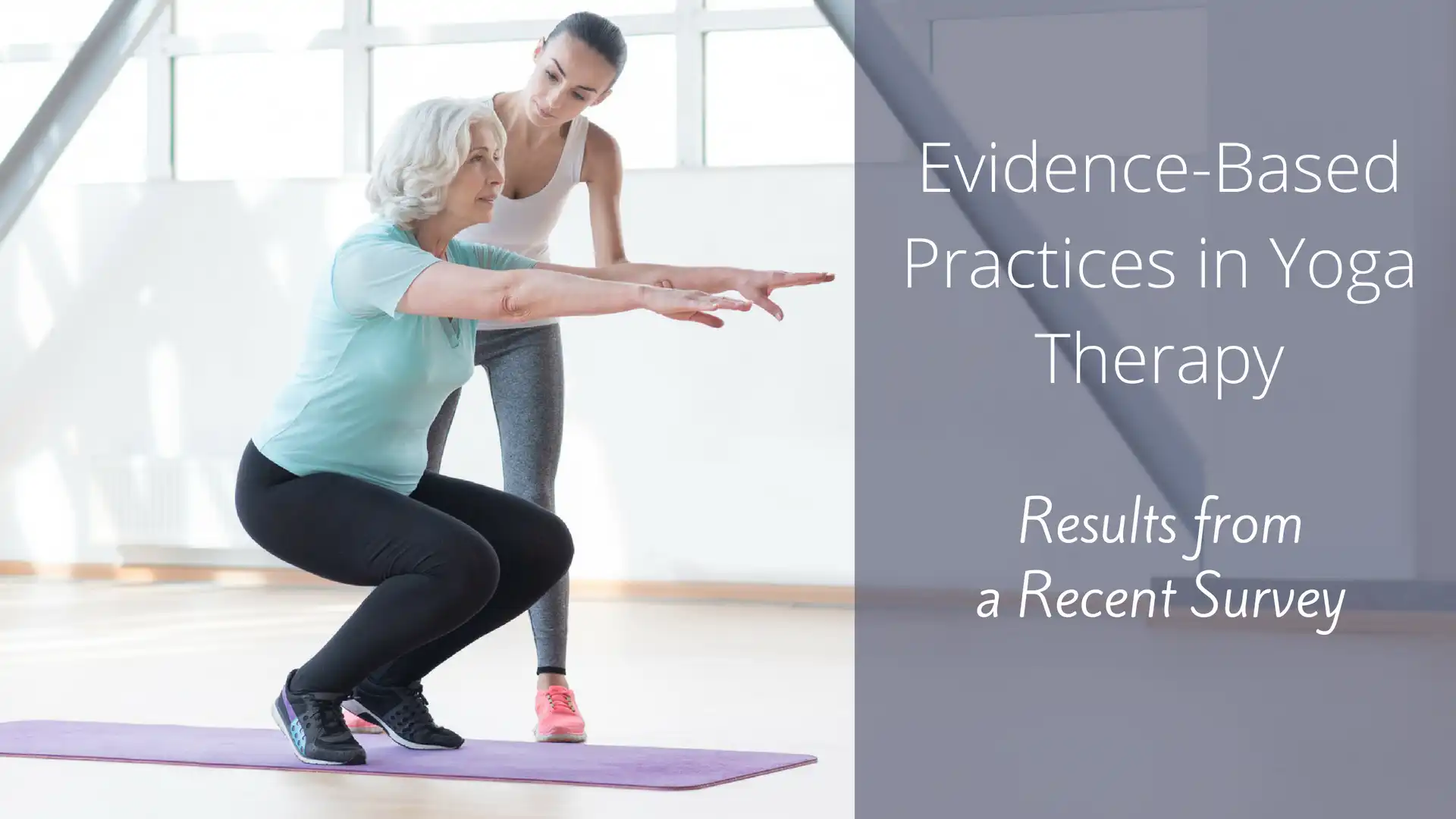Do Yoga Therapists Rely on Evidence-Based Practices in Their Work? Results from a Recent Survey

As a new, emerging discipline, one of the great questions yoga therapists face is which yoga strategies, practices, and tools will be the most effective in addressing the needs of any particular client.
One tool for inquiry is that of Evidence-based Practice. Evidence-based Practice is a term that has its roots in the medical field. It describes an interdisciplinary approach to client or patient care. Using this approach, a yoga therapist reviews research that has worked in the context of one or several studies in considering which yoga-based tools (asana, pranayama, meditation, etc.) to experiment with in addressing the unique needs of each client.
Evidence-based Practice is a relatively recent concept, having been introduced within the medical community in the early 1990’s. While there is research that confirms wide acceptance within the allied health and educational fields, less was known about its application among practicing yoga therapists. To answer the question of how and if the therapeutic yoga community has adopted this practice, researchers recently conducted a survey that examined the use of, and attitudes towards, Evidence-based Practice among yoga therapists practicing in North America.
The cross-national survey, “Understanding North American yoga therapists’ attitudes, skills and use of evidence-based practice: A cross-national survey,” was published in 2017. Besides exploring attitudes, the survey queried participants on their skills and training in and application of Evidence-based Practice in their work.
How the Yoga Therapy Survey was Conducted
Three hundred sixty-seven members of the International Association of Yoga Therapists (IAYT) who are currently practicing yoga therapy in the United States and Canada participated in the survey. Each survey participant completed the Evidence-based Practice Attitude and Utilization Survey (EBASE), which was originally created to determine the attitudes, skills, and use of evidence-based practice by clinicians. EBASE evaluates participants’ attitudes, skills, education and training, use of evidence-based practice, barriers to evidence-based practice, facilitators of evidence-based practice, and demographics.
The Results: What Yoga Therapists Had to Say
The results of the survey indicated that the participants’ attitudes towards evidence-based practice were mostly positive with 88.3% of respondents agreeing or strongly agreeing that professional literature and research data were useful in their daily practice of yoga therapy. In addition, 77.7% believed evidence-based practice was necessary for the practice of yoga therapy. A majority of participants (80.1 percent) indicated an interest in improving their own abilities to incorporate evidence-based practice into their yoga therapy practice.
A lack of clinical evidence in yoga therapy was the only notable barrier to respondents’ use of evidence-based practice in their yoga therapy practice. A majority of the study participants indicated that offering better access to current yoga therapy research and other evidence-based practice resources could increase their use of evidence-based practice.
To improve best practice in the field of yoga therapy, the study’s authors propose supporting initiatives to support the adoption of evidence-based practice, such as making evidence-based practice education materials, journal articles, and other research tools more easily accessible to yoga therapists.
 Christine Malossi began practicing yoga in 1999. Based in New York City, she offers an alignment-focused, slow Vinyasa practice that cultivates awareness and equanimity. She is currently enrolled in an 800-hour course on the History, Literature, and Philosophy of Yoga (taught by Brenda Feuerstein, designed by the late Georg Feuerstein). Christine is a Registered Yoga Teacher with Yoga Alliance, and has additional certifications in Therapeutic Yoga, Restorative Yoga, Accessible Yoga, and Functional Anatomy for Movement and Injuries. She attended the University of Pennsylvania and NYU, and also spent many years studying classical ballet. Find her at christinemalossi.com.
Christine Malossi began practicing yoga in 1999. Based in New York City, she offers an alignment-focused, slow Vinyasa practice that cultivates awareness and equanimity. She is currently enrolled in an 800-hour course on the History, Literature, and Philosophy of Yoga (taught by Brenda Feuerstein, designed by the late Georg Feuerstein). Christine is a Registered Yoga Teacher with Yoga Alliance, and has additional certifications in Therapeutic Yoga, Restorative Yoga, Accessible Yoga, and Functional Anatomy for Movement and Injuries. She attended the University of Pennsylvania and NYU, and also spent many years studying classical ballet. Find her at christinemalossi.com.
Source: Sullivan, Marlysa. Understanding North American yoga therapists’ attitudes, skills, and use of evidence-based practice: A cross-national survey. Complementary Therapies in Medicine 32 (2017), 11-18.



